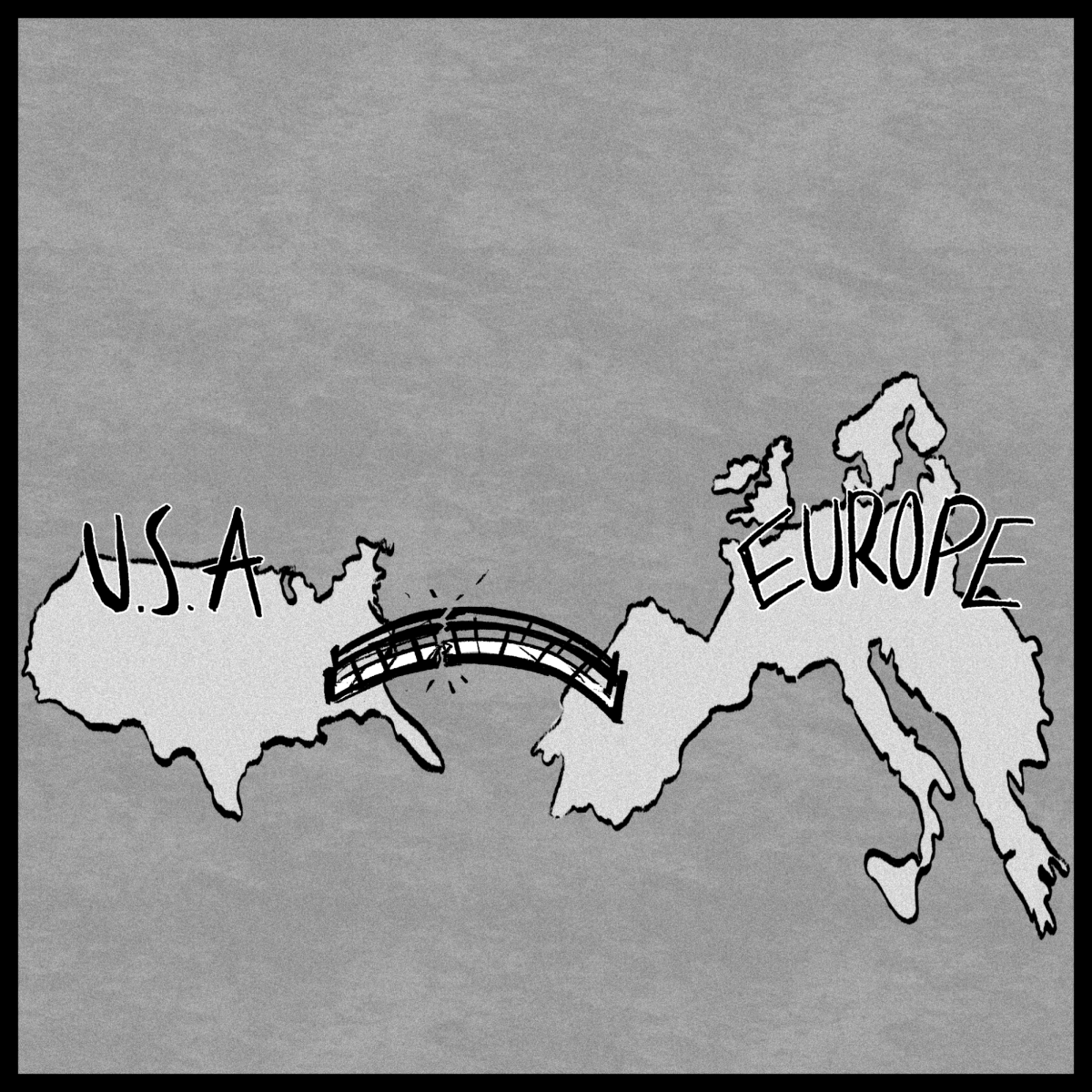Throughout the tumultuous first few months of Donald Trump’s return to the White House, there has been a barrage of shifts in both policies and regulations. Many of the policy changes have directly targeted foreign relations, including those with many of the United States’s closest allies.
The U.S.’s largest ally, the European Union, has been an essential trading partner and a key entity in defense and global stability. Despite the importance of the relations between two key global powers, recent efforts by the new administration have not only undermined the relationship but have also severely damaged how the two powers interact with each other. This unprecedented and aggressive shift in foreign policy will have disastrous economic relations and threaten defense agreements that protect numerous European countries and the U.S. itself.
Many of the conflicts between the E.U. and the U.S. have arisen as a result of a speech by James David Vance at the Munich Security Conference. Here, he criticized European countries on a variety of topics, including their prioritization of threats and claims about suppression of free speech.
Vance claimed that European countries ignored their voters’ fears about immigration and that E.U. policies threatening free speech have actively undermined the support that the two powers had previously shown for each other. This unusual fixation on E.U. criticisms also conspicuously avoided the Russian invasion of Ukraine, a key topic of the conference.
The speech was met with immediate and widespread condemnation by conference attendees and officials from several E.U. nations, including the German Defense Minister Boris Pistorius. He called “comparing conditions in parts of Europe with those in authoritarian regions” as “not acceptable,” DW News reported. Such responses to the Vice President’s claims were not unusual and are indicative of the quickly-souring relationship.
Alongside the damage done to the relationship between the U.S. and the E.U. is the worsening state of U.S. relations with the North Atlantic Treaty Organization. The treaty’s union of various nations across the globe in an attempt to prevent conflict has been extensively criticized by both Trump and Vance, who have accused fellow member nations of not contributing enough and taking advantage of the U.S. These claims have been repeated from Trump’s first term, including the threat the U.S. would leave NATO if funding quotas of five percent of each nation’s GDP were not met.
Trump’s accusations and threats have only increased in severity in recent years, culminating in an environment where the unity of NATO as a whole has been undermined by such efforts. This in return casts doubt as to whether the U.S. would even fulfill its obligations to defend other nations in the event of an attack.
The importance of treaties and unions such as NATO have only become more relevant following the invasion of Ukraine and the threat of expanded conflict across Europe. With every doubt cast by Trump as to whether Ukraine is actually seeking peace or unsubstantiated claims that Volodymyr Zelenskyy is a dictator, the unified effort of much of Europe to defend Ukraine continues to be increasingly threatened. Such efforts to undermine Europe only seek to damage international relations, which could affect hundreds of billions in economic activity and the already fragile national security of countries across the continent.
As the administration continues its efforts to seemingly weaken one of the nation’s strongest and most beneficial relationships, it risks not only the economic benefits of such a close relationship but also the national security it provides. Creating internal strife in organizations such as the E.U. and NATO will ultimately diminish their purposes and create unnecessary risk for both Europe and the U.S., especially as Russia continues its efforts to rebuild its borders from its time as the Soviet Union.
If the new administration is genuinely concerned with the wellbeing of the U.S. and its allies, it needs to properly support those allies and not actively endanger them through levying accusations and threats.


